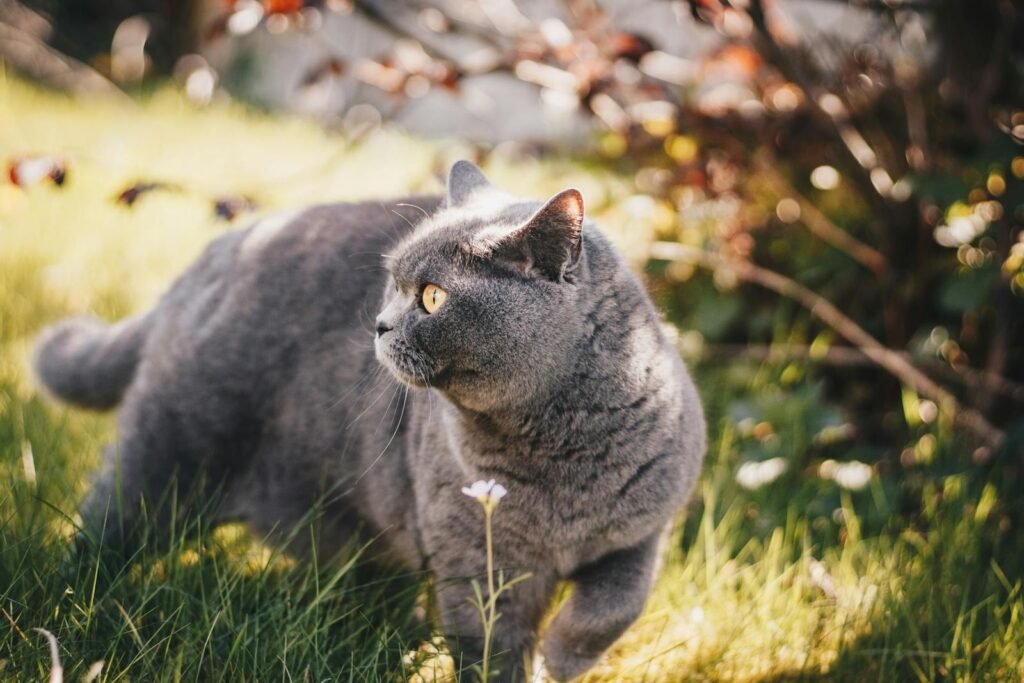Have you ever woken up one morning, reached out, and realized your furry feline friend is no longer by your side? It’s a scenario many cat lovers have faced, leaving them puzzled and perhaps a bit heartbroken. Cats, those enigmatic creatures, sometimes change their sleeping arrangements without any apparent reason. But what does it mean when your beloved pet suddenly decides to abandon the cozy spot next to you? Let’s unravel this mystery and explore the multitude of reasons behind this behavior.
Changing Temperatures: A Quest for Comfort

Cats are incredibly sensitive to temperature changes. When the weather shifts, so do their preferences for sleeping spots. If your bedroom becomes too cold or too warm, your cat might seek a more comfortable place to rest. Just like humans, they crave comfort and may move to a spot that better suits their needs. Think of it as them seeking a cooler tile floor in the summer or a warm sunny spot in the winter. This behavior is quite natural and doesn’t necessarily indicate any underlying issues.
Health Concerns: A Silent Cry for Help
Sometimes, a sudden change in sleeping habits can be a subtle hint that your cat isn’t feeling well. Cats are notorious for hiding their ailments, and a shift in behavior can be one of the few signs. If your cat stops sleeping beside you and starts exhibiting other unusual behaviors, like decreased appetite or lethargy, it might be time for a vet visit. They could be experiencing discomfort or pain, and their change in sleeping location is their way of seeking relief. Always pay attention to these silent cries for help.
Preference for Privacy: A Need for Space
Every cat has its unique personality, and some might simply develop a preference for solitude. As they age, they might desire more privacy and independence. This doesn’t mean they love you any less; it’s just a part of their evolving nature. Consider it akin to a teenager wanting their own room. They still cherish your company but might need some alone time to recharge. Respecting their space can strengthen your bond in the long run.
Environmental Changes: Adapting to New Surroundings
Have there been any recent changes in your home environment? New furniture, a different sleeping arrangement, or even a new pet can disrupt your cat’s routine. Cats are creatures of habit and might take time to adjust to changes. If your cat stops sleeping next to you after a change, it might be their way of adapting to the new environment. Give them time and space, and they might return once they feel comfortable again.
Stress and Anxiety: More Than Just a Mood
Cats can experience stress and anxiety just like humans. Loud noises, visitors, or changes in the household can make them feel uneasy. If your cat is stressed, they might seek a quieter, more secluded spot to sleep. It’s their way of finding peace amidst chaos. Creating a calming environment with familiar scents and quiet spaces can help ease their anxiety and encourage them to return to their usual sleeping spot.
Age-Related Changes: Growing Pains

As cats age, their needs and habits change. Older cats might develop arthritis or other age-related conditions that make it uncomfortable to sleep in certain positions or places. If your once-cuddly kitten now prefers to sleep elsewhere, it might be due to the natural aging process. Providing them with soft bedding and easy-to-access sleeping areas can help accommodate their changing needs.
Bonding with Other Pets: A New Friendship
If you have multiple pets, your cat might form a new bond with another animal in the household. They might choose to sleep next to their new friend instead of you. This behavior is a testament to their social nature and should be seen as a positive development. It doesn’t mean they love you any less; they’re just expanding their social circle. Embrace their new friendship and enjoy the dynamics of a multi-pet household.
Exploring New Territories: The Adventurous Spirit

Cats are natural explorers, and their curiosity often leads them to new territories within your home. If your cat stops sleeping next to you, they might have found a new favorite spot. It could be a windowsill with a view or a cozy nook that offers a sense of security. Encouraging their adventurous spirit can be beneficial, as it keeps them mentally stimulated and content.
Changes in Your Routine: A Reflection of Your Life

Cats are incredibly intuitive and often mirror the routines of their human companions. If you’ve recently changed your schedule, it might affect your cat’s habits too. They might adjust their sleeping patterns to align with yours or find a new spot that fits their new routine. Being mindful of how your lifestyle changes impact your pet can help you understand their behavior better.
Natural Instincts: The Call of the Wild

Despite being domesticated, cats still have strong instincts. Their ancestors were solitary hunters, and sometimes, these instincts resurface. Your cat might choose to sleep elsewhere as a nod to their wild roots. It’s an intrinsic behavior that doesn’t necessarily require intervention. Understanding and respecting their natural instincts can help you appreciate their rich and complex nature.
In conclusion, when your cat stops sleeping next to you, it’s not necessarily a cause for concern. It could be a simple preference or a sign of something more significant. Observing their behavior and understanding their needs can strengthen your bond and ensure their well-being. After all, cats are mysterious creatures, and part of the joy of having them as companions is unraveling these little mysteries. What do you think your cat is trying to tell you?

Growing up traveling and experiencing new cultures and wonders, I have had a passion for nature, adventuring, photography, and videography. I am currently working towards a BSc in Biodiversity and Ecology at Stellenbosch University, and I hope to specialise in Marine Sciences one day.
Please send any feedback to Feedback@animalsaroundtheglobe.com






